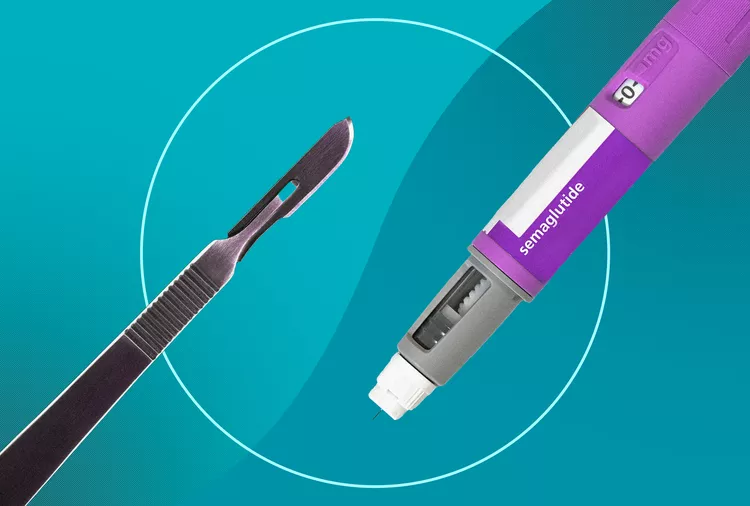Weight management is a critical aspect of overall health, particularly for individuals struggling with obesity. With advancements in medical treatments, people now have more options to choose from, including pharmaceuticals like semaglutide (marketed as Wegovy) and weight loss surgeries such as gastric bypass and sleeve gastrectomy. Both methods have shown effectiveness in promoting significant weight loss, but they differ in mechanisms, outcomes, and considerations. This article explores the benefits and differences between semaglutide and weight loss surgery to help you make an informed decision.
Semaglutide: The Pharmacological Approach
Mechanism of Action
Semaglutide is a glucagon-like peptide-1 (GLP-1) receptor agonist. Originally developed to treat type 2 diabetes, it has shown remarkable efficacy in inducing weight loss. Semaglutide works by mimicking the hormone GLP-1, which regulates appetite and food intake. It slows gastric emptying, reduces appetite, and increases feelings of fullness, leading to lower caloric intake.
Efficacy
Clinical trials have demonstrated that semaglutide can result in an average weight loss of 15-20% of body weight over 68 weeks when combined with lifestyle modifications. This level of weight loss is significant, particularly for a pharmacological intervention, and can lead to improvements in obesity-related conditions such as hypertension, diabetes, and dyslipidemia.
Advantages
Non-invasive: Semaglutide is administered via weekly injections, avoiding the risks and recovery time associated with surgery.
Reversible: Unlike surgery, the effects of semaglutide can be discontinued if side effects occur or if it’s not tolerated well.
Accessibility: It can be prescribed by a healthcare provider and doesn’t require the extensive pre-operative preparation that surgery entails.
Considerations
Cost: Semaglutide can be expensive, and insurance coverage varies.
Side Effects: Common side effects include nausea, vomiting, and gastrointestinal discomfort.
Long-term Use: Continued use is necessary to maintain weight loss, and the long-term safety profile is still being evaluated.
Weight Loss Surgery: The Surgical Approach
Types of Surgery
Common types of weight loss surgery include gastric bypass, sleeve gastrectomy, and adjustable gastric banding. These surgeries either reduce the size of the stomach or reroute the digestive tract to limit food intake and nutrient absorption.
Efficacy
Weight loss surgery typically results in more substantial and rapid weight loss compared to pharmacological treatments. On average, patients can expect to lose 25-30% of their body weight within the first year after surgery. This significant weight reduction can lead to the remission of type 2 diabetes, improvement in cardiovascular risk factors, and enhancement of overall quality of life.
Advantages
Long-term Results: Studies indicate that surgical patients maintain significant weight loss for up to 10 years post-surgery.
Health Benefits: The rapid weight loss and subsequent reduction in obesity-related comorbidities can dramatically improve health and longevity.
One-time Procedure: Unlike medications that require ongoing administration, surgery is a one-time intervention.
Considerations
Invasiveness: Surgery carries inherent risks such as infection, complications from anesthesia, and postoperative complications.
Recovery Time: Patients need a period of recovery and may experience significant changes in lifestyle and diet.
Irreversibility: Most surgical interventions are permanent and altering the digestive system.
Conclusion: Which Is Better?
The choice between semaglutide and weight loss surgery depends on individual circumstances, including health status, weight loss goals, and personal preferences.
Semaglutide might be preferable for those looking for a non-invasive, medically supervised option with a moderate weight loss goal. It’s particularly suitable for individuals not keen on undergoing surgery or those with contraindications for surgical procedures.
Weight Loss Surgery might be the better option for individuals with severe obesity and related health conditions who require significant and rapid weight loss. It offers long-term weight management and substantial health benefits but comes with the risks and permanent nature of surgical intervention.
Ultimately, a thorough discussion with healthcare professionals, considering the risks, benefits, and individual health profiles, is essential in making the best decision for weight loss management.






